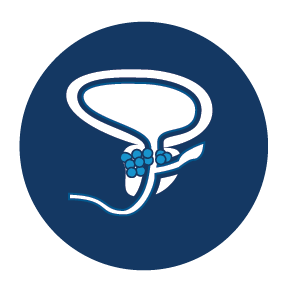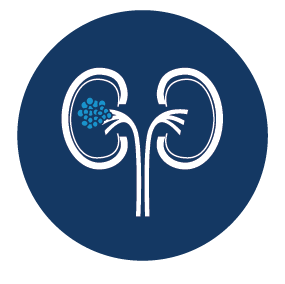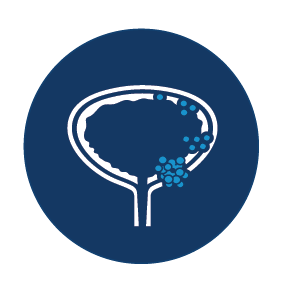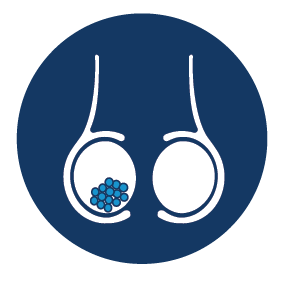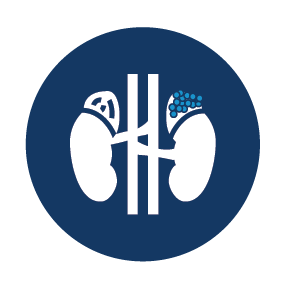UROLOGY CANCER AND TREATMENTS
Dr Matthew Winter has spent an additional two years in the USA specialising in Urology Cancers and their treatments. He offers a wide range of services including the latest techniques in robotic surgery for urology cancer.
Dr Matthew Winter treats a range of urology cancers including Prostate Cancer, Kidney Cancer, Bladder Cancer, Testicular Cancer and Adrenal Cancer . He offers the latest surgical techniques both robotic and laparoscopic (keyhole) to ensure the best outcomes.
Below is a brief overview of the most common urologic cancers and treatments that Dr Matthew Winter manages. If you wish to learn more about the condition or the treatment, please click on the links below in each of the sections or contact our office to request our helpful patient information guides.
PROSTATE CANCER
Prostate Cancer is the most common cancer found in men. It is one of the most treatable and curable cancers when detected early. Prostate Cancer can be picked up early if men make sure they visit their GP’s at the age of forty for a preventative physical examination as well as a blood test called the PSA (Prostate Specific Antigen) test.
Symptoms that patients may notice include changes in urination habits such as pain during urination, increased number of times to visit the toilet (frequency) particularly at night. Difficulty in beginning to urinate, starting and stopping during urination flow, dribbling afterward and blood in the urine.
Treatment options usually include a range of treatments including;
Hormonal therapy (advanced prostate cancer)
Chemotherapy (advanced prostate cancer)
Active surveillance
Surgery - Robotic Radical Prostatectomy
Radiation Therapy
Brachytherapy
External Beam Radiation
Focal Therapy
For more information please don’t hesitate to contact our clinic for patient information sheet
Patient Education Diagrams | Australian Cancer Council | NCCN Prostate Cancer Guidelines
KIDNEY CANCER
The Kidneys are a complex pair of organs and can develop several different types of cancers. Kidney Cancers have been linked to cigarette smoking, obesity and high blood pressure.
Symptoms that you may notice include blood in the urine and changes in urination habits such as uncomfortable burning and increased number of visits to the toilet (frequency) and urgency to urinate.
Treatment options are dependent upon the cancer type and the stage of the disease, yet usually include one or a range of the following treatments:
Surgery
Radical/Laparoscopic Nephrectomy
Robotic/Laparoscopic Partial Nephrectomy
Radiofrequency Ablation (RFA)
Robotic or Open Nephrectomy with IVC Thrombectomy
For more information please don’t hesitate to contact our clinic for patient information sheet
Patient Education Diagrams | Australian Cancer Council | NCCN Kidney Cancer Patient Guidelines
BLADDER CANCER
Bladder Cancer is the second most common urological cancer and usually begins in the cells that line the bladder. Bladder Cancer has been linked to cigarette smoking and exposure to industrial chemicals and toxins.
Symptoms that patients may notice include blood in the urine and changes in urination habits such as uncomfortable burning, an increased number of visits to the the toilet (frequency) and an urgency to urinate.
Treatment options are dependent upon the cancer type and the stage of the disease, yet usually include one or a range of the following treatments:
Radiotherapy
Chemotherapy
Combination of Chemotherapy and Radiotherapy
Cystoscopy & Transurethral Resection of the Bladder Tumour
Intravesical Therapy (Chemotherapy or BCG into the bladder)
Robotic Cystectomy with Urinary Diversion (Ileal conduit, Neobladder)
For more information please don’t hesitate to contact our clinic for our patient information sheets.
Patient Education Pictures and Diagrams | Australian Cancer Council
TESTICULAR CANCER
Testicular Cancer is the most common cancer found in men between the ages of 18 and 39. Testicular Cancer is highly treatable and curable if patients ensure they are compliant with their treatment. Testicular Cancer occurs in the testicles located inside the scrotum and it is usually only found in one testicle.
Symptoms patients may notice include swelling or a lump in either of the testes, a feeling of heaviness in the scrotum and sometimes a dull ache, pain or discomfort.
Treatment options are dependent upon the cancer type and the stage of disease, yet usually include one or a range of the following treatment:
Surgery
Radical orchidectomy
RPLND - Retroperitoneal Lymph Node Dissection (Robotic)
Radiation therapy
Chemotherapy
ADRENAL CANCER
Adrenal tumours are not common and grow in one or both of the small adrenal glands located on top of the kidneys. It is most likely to affect early to middle aged adults. Adrenal tumours can either be benign (non-cancerous) or malignant (cancerous) and they can sometimes make hormones that circulate around the body.
Symptoms patients may notice include unexplained weight gain, muscle weakness, nausea, vomiting, pink or purge stretch marks on the skin, abdominal bloating, back pain, high blood pressure, anxiety or palpitations. This depends upon which hormones get made.
Treatment options are dependent upon the tumour/ cancer type and the stage of the disease, yet usually include one or a range of the following treatments:
Surgery - Adrenalectomy - recommended in tumours greater than 4cm, those that make excessive hormones or those which appear malignant on imaging
Medications
Radiation Therapy
Chemotherapy
For more information please don’t hesitate to contact our clinic for patient information sheets

